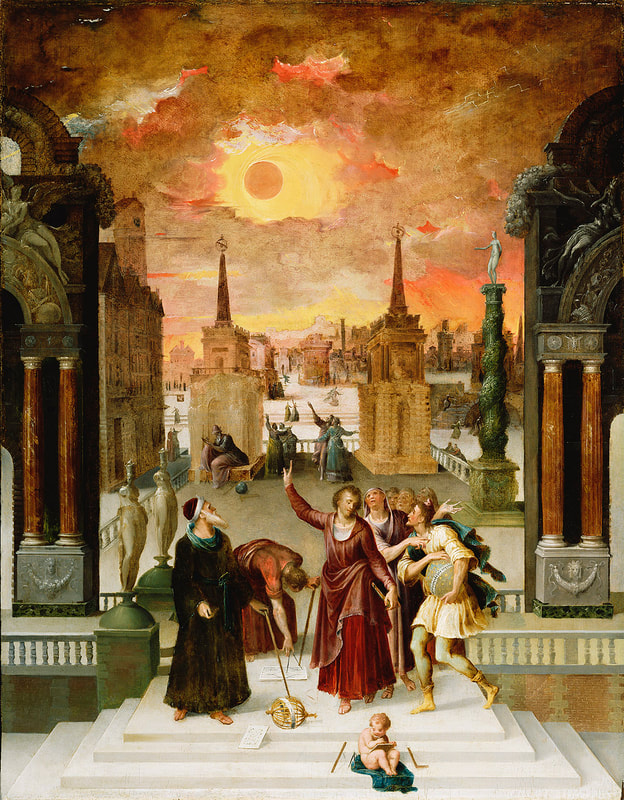The Oxford Dictionary defines an astronomical eclipse as “an obscuring of the light from one celestial body by the passage of another between it and the observer or between it and its source of illumination.” In the ancient world, when astronomy and astrology were not separate and competing fields of study, eclipses were also considered much more than physical phenomena. They were taken to be physical significations of great and significant workings of the metaphysical substrata animating the clockwork of the Universe. In those bygone ages, eclipses were also omens.
Whether solar or lunar, to witness an eclipse can be a powerful experience. To an ancient astronomer, it may have seemed an event of singular importance, as it involves the two luminaries of the sky—the sun and moon. Records indicate that in very early iterations of the civilizations of China, India, Peru, and Southeast Asia, it was commonly believed that a dragon or demon was attacking the Sun during a lunar eclipse. In other places, such as ancient Egypt, the eclipse was symbolized as the serpent Apophis—god of chaos—attacking the sun-boat of the solar deity Ra.
...
Subscribe to the New PRS Journal to read on...
Whether solar or lunar, to witness an eclipse can be a powerful experience. To an ancient astronomer, it may have seemed an event of singular importance, as it involves the two luminaries of the sky—the sun and moon. Records indicate that in very early iterations of the civilizations of China, India, Peru, and Southeast Asia, it was commonly believed that a dragon or demon was attacking the Sun during a lunar eclipse. In other places, such as ancient Egypt, the eclipse was symbolized as the serpent Apophis—god of chaos—attacking the sun-boat of the solar deity Ra.
...
Subscribe to the New PRS Journal to read on...
Nothing comes from nothing. Manly Hall’s vision for the All-Seeing Eye was entirely supported by contributions from its readers who paid for their subscription with gifts made according to their means. Manly Hall wrote,
“This magazine is published and distributed privately to those who make possible with their financial support its publication. The magazine cannot be bought and has no fixed value. Like all of the ancient teachings which it seeks to promulgate, it has no comparative value, but the students must support it for its own intrinsic merit.”



